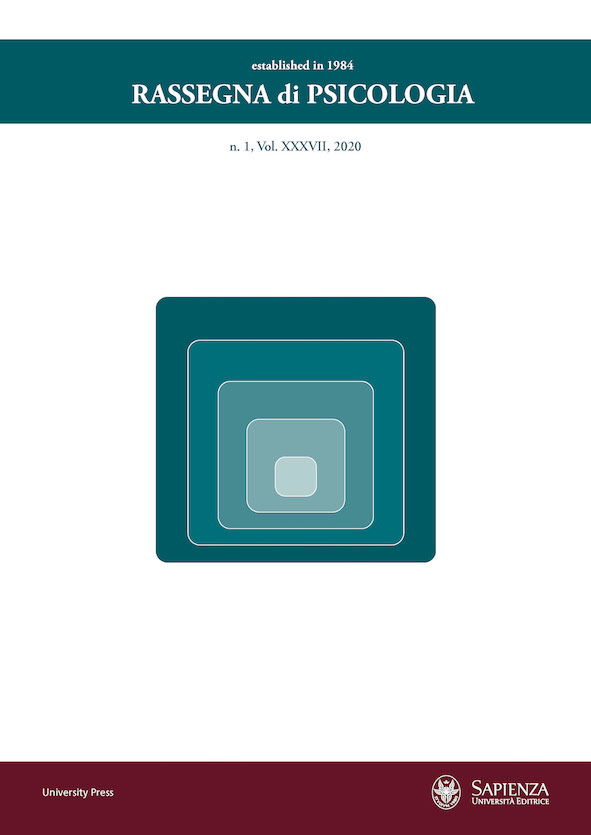Lie for me: how empathy, alexithymia and emotional intelligence influence the ability to conform facial expression to a prosocial untrue verbal message
DOI:
https://doi.org/10.13133/1974-4854/16723Keywords:
facial expression, alexithymia, empathy, emotional intelligence, white lie, prosocial behaviorAbstract
The aim of this work was to investigate the association between emotional variables (empathy, emotional intelligence, alexithymia) and lying skills. The hypothesis was that a higher emotional competence was associated to a better ability to lie. In an experimental setting, thirty-four participants were videotaped in two separate session: the first in which they were telling the truth and the second in which, motivated by a social and empathetical intention, they were lying about some emotionally arousing images they viewed. Moreover, all participant filled three self-report questionnaires: The 20-Item Toronto Alexithymia Scale, The Interpersonal Reactivity Index and The Trait Emotional Intelligence Questionnaire Short Form. The coding of facial responses was carried out using the Facial Action Coding System. The findings suggested that emotional competence is associated with the ability to lie and to conform facial expression to a prosocial untrue statement. Conversely, individuals with higher levels of alexithymia and lower emotional ability manifested more marker of discomfort as facial manipulators in lying, other than inconsistencies in verbal/nonverbal messages even telling the truth, probably due to their difficulties to identify and express emotions.Downloads
Published
2020-05-18
Issue
Section
Articles
License
Copyright (c) 2020 Rassegna di psicologia

This work is licensed under a Creative Commons Attribution-NonCommercial-ShareAlike 4.0 International License.

